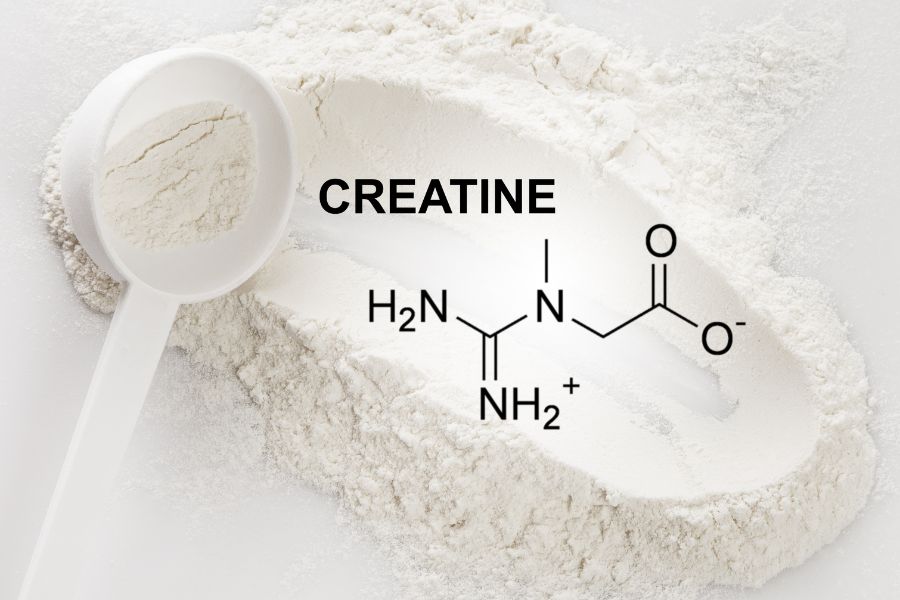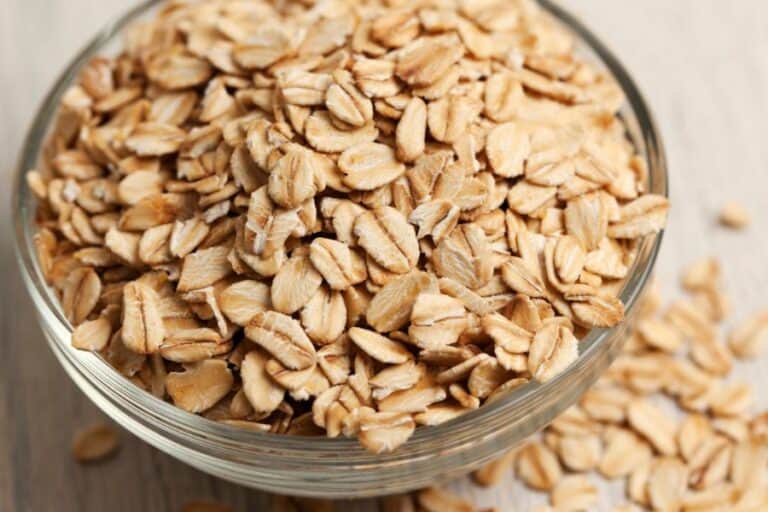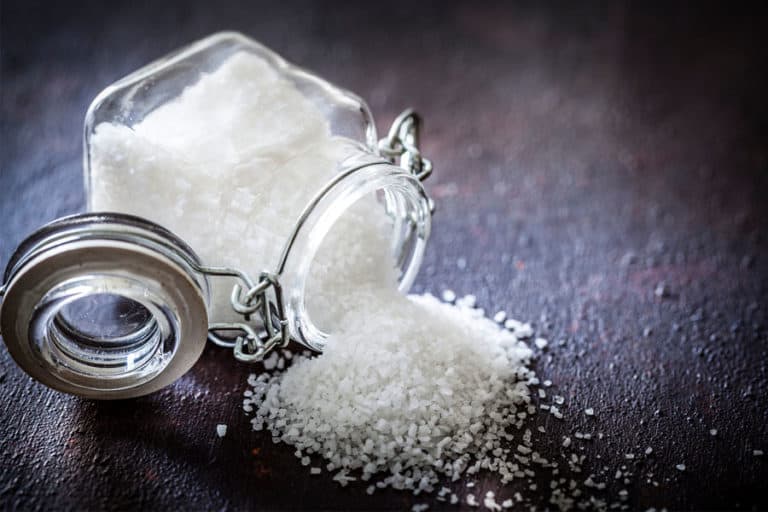Does Creatine Expire: What Fitness Enthusiasts Should Know?

Understanding creatine | Does creatine expire | Signs | Side effects | Tips to store | Tips to dispose
Creatine plays a key role in sports nutrition and is a popular dietary supplement among fitness enthusiasts, bodybuilders, and athletes.
Nonetheless, it is not uncommon to notice dry, discolored, and clumpy creatine upon opening the container. This often raises the question of whether creatine has a specific expiration date.
Typically, labels indicate that creatine supplements last two to three years, depending on the form. However, there is more to this story you should know.
Does Creatine expire?
Yes, creatine does expire. Manufacturers typically indicate a two to three-year shelf life for creatine supplements. However, the shelf life of creatine may vary based on its form and storage conditions.
How long does creatine last?
Creatine supplements, particularly creatine monohydrate powder, can last longer than their expiration dates. Creatine monohydrate supplements typically remain stable and do not convert into creatinine, which makes them less potent.
A study [1]National Library of Medicine: Analysis of the efficacy, safety, and regulatory status of novel forms of creatine revealed that a creatine monohydrate supplement remained stable and did not show signs of breakdown for nearly four years, even after being stored at high temperatures.
Other forms of creatine supplements, such as creatine ethyl ester, creatine HCL, and liquid creatines, are less stable and more likely to break down past their expiration date.
Creatine supplements are available in different types:
- Creatine Monohydrate: This is the most common form of creatine, made up of a creatine molecule and a water molecule.
- Creatine Ethyl Ester: This is a creatine monohydrate with an attached organic compound formed by reacting the carboxylic acid with an alcohol.
- Creatine Magnesium Chelate: Refers to creatine supplement with attached magnesium molecule.
- Creatine Hydrochloride (HCL): Refers to creatine bound to hydrochloric acid.
- Buffered creatine: This form of creatine is created by adding an alkaline substance to reduce the acidity of creatine monohydrate powder.
- Liquid creatine: This is simply a blend of creatine powder with water.
Let us take a glance at the expiry date of different types of creatine:
| Type of creatine | Expiry date |
| Creatine Monohydrate | 2-3 years from the manufacturing date |
| Creatine Ethyl Ester | 2-3 years from the manufacturing date |
| Creatine Magnesium Chelate | 2-3 years from the manufacturing date |
| Creatine Hydrochloride | 2-3 years from the manufacturing date |
| Buffered creatine | 2-3 years from the manufacturing date |
| Liquid creatine | 6 months to 1 year from the manufacturing date |
Understanding creatine
Creatine is a natural compound in muscle cells formed from the amino acids arginine, glycine, and methionine. It binds to adenosine diphosphate (ADP) to form adenosine triphosphate (ATP), the immediate source of energy for muscle cells, aiding in muscle contraction.
The body produces creatine from glycine and arginine, with the rest coming from dietary sources such as meat and seafood. However, some people rely on dietary supplements to boost their creatine levels.
A study [2]PubMed: In sickness and in health: the widespread application of creatine supplementation found that creatine supplements can enhance exercise tolerance, lean body mass, and muscle strength. While creatine may cause weight gain due to water retention, this gain is indicative of increasing creatine stores and can lead to increased lean muscle mass without fat accumulation.
Additionally, another study [3]PubMed: Beyond muscles: The untapped potential of creatine found that creatine protects against neurological disorders in humans and animals.
Signs of expired creatine
Here are some of the common signs that indicate that your creatine has gone bad or expired:
1. Bad odor
A creatine supplement should not have a strong odor if it is normal. However, if the creatine has expired or been exposed to light or moisture, you may experience a pungent smell.
This is due to the breakdown of the spoiled creatine into creatinine, which results in an unpleasant and distinctive odor. Therefore, a foul smell can serve as a clear indication that the creatine supplement has gone bad.
2. Foul taste
An expired or spoiled creatine supplement may have a foul taste. If you notice a difference in the taste of your creatine supplement, it could be a sign that it has gone bad.
A normal creatine supplement should have a relatively neutral taste, so any unusual or unpleasant taste is an indicator that the product is no longer good to use.
3. Change in color and texture
Powdered supplements of normal creatine are typically white and have a fine, powdery texture. If you notice that the creatine supplement has clumped together or has an off-white or yellow discoloration, it may be an indication that the product has degraded.
A normal creatine supplement should maintain its color and texture over time, so any change in appearance could be a sign of spoilage.
4. Reduced effectiveness
The most significant sign of expired creatine is reduced effectiveness. The supplement may not provide the desired results, such as increased strength, power, and muscle mass, indicating that the product has lost its potency.
How to dispose of expired creatine safely?
Proper disposal of creatine supplementation is necessary to avoid environmental contamination and potential harm to aquatic organisms and wildlife.
Thus, here are some tips to dispose of creatine:
- Most manufacturers provide clear instructions on the packaging regarding disposal. Follow those directions to avoid any environmental damage.
- Seal the container tightly to prevent litter and keep animals from consuming it.
- Dispose of the sealed container in the trash rather than flushing it down the sink or toilet.
- Do not burn expired creatine supplements, as they can release harmful chemicals into the air.
- If you have a large amount of expired creatine, consider taking it to a hazardous waste collection center for safe disposal.
Side effects of consuming expired creatine
Creatine beyond its expiration date is generally considered safe. However, if you notice any signs of degradation, it is best to discard the product and replace it with a fresh supplement.
Here are common side effects of taking expired creatine that is showing signs of breaking down:
- Gastrointestinal distress: Expired creatine can irritate your digestive system and lead to symptoms like bloating, cramping, diarrhea, and nausea.
- Kidney damage: Creatinine, a byproduct of creatine breakdown, can accumulate in your kidneys and cause damage if you consume expired creatine over a prolonged period.
- Dehydration: Expired creatine can cause your muscles to retain water, leading to dehydration if you don’t drink enough fluids.
- Headaches: Some people may experience headaches or migraines after consuming expired creatine, possibly due to changes in blood flow or brain chemistry.
- Reduced athletic performance: If the expired creatine has lost its potency, it may not provide the same benefits as fresh creatine, leading to a decline in athletic performance.
Tips to store creatine
To maintain the shelf life and potency of your creatine supplement, it’s important to store it properly. Here are some tips to follow:
- Store creatine in a cool, dark, and dry place to prevent exposure to light, heat, or moisture that can break down the amino acid molecules and reduce its effectiveness.
- Close the container tightly to prevent air from entering and keep the lid tight to avoid moisture, which can promote the breakdown of creatine.
- Keep creatine at room temperature and avoid storing it in the fridge or freezer. Mix it only when you need it.
Conclusion
Creatine supplements work to improve athletic performance and are generally safe when taken as directed. To ensure the effectiveness of the product, it’s important to check for any changes in appearance that could indicate degradation, such as discoloration.
If you observe expiration signs, it’s best to dispose of the expired supplement and replace it with a fresh one. Proper storage and safe disposal of creatine supplements can help prevent any potential harm.
References
| ↑1 | National Library of Medicine: Analysis of the efficacy, safety, and regulatory status of novel forms of creatine |
|---|---|
| ↑2 | PubMed: In sickness and in health: the widespread application of creatine supplementation |
| ↑3 | PubMed: Beyond muscles: The untapped potential of creatine |







